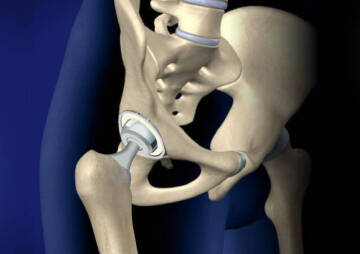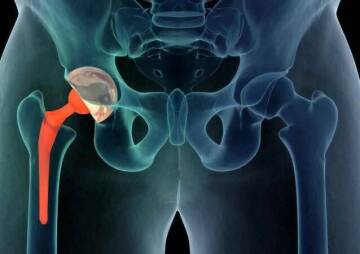-
Category
Craniomaxillofacial Surgery
Orthopedic Surgery
Spine Surgery
Orthopedic Implants
Hip Surgery
Knee Surgery
Pectus Excavatum
Bone Graft
Disinfectants
Healthcare
What Is The Average Age For Hip Replacement?

the average age for a hip replacement is a controversial issue, and there is no definitive answer to this issue today. Lets read this post to know more
Patients who suffer from hip pain and are candidates for hip replacement always have questions and concerns about surgery. Is there a "right" stage of life for hip arthroplasty? What is the average age for hip replacement? What age is too old, or too young, to undergo a hip replacement? Patients want to know the answers to these questions so they can have a successful hip arthroplasty. Traditional surgical approaches are adapting and advancing day by day due to an increase in degenerative joint diseases such as osteoarthritis at a young age. As a result of these modifications and improvements, the average age for hip replacement can also change. What age is appropriate for this surgery and the potential consequences of postponing the surgery will be discussed further below.
Types of Hip Replacement
As many of you know, hip replacement, also known as hip arthroplasty, is an effective and practical way of relieving pain in patients with hip joint damage. In hip operation, the surgeon removes the worn parts of the patients' hip joints and replaces this with an artificial joint made of various materials such as plastic, ceramic, or metal. Doctors recommend three types of hip replacements based on the patients' health status and the severity of hip pain or damage; Total hip replacement, partial hip replacement, and hip resurfacing.
- Total hip replacement, or total arthroplasty, is one of the most common types of joint replacement performed in the United States, with more than 450,000 annually. In this operation, the entire damaged bone or cartilage is replaced with the prosthetic component. Compared to other types of hip replacement, this procedure is more complicated and has a more challenging recovery period.
- Partial hip replacement is recommended for patients whose hip joint ball is worn and needs to be replaced with a prosthesis. The socket part of the joint remains intact, so partial hip arthroplasty is more straightforward than the total type and has the shortest recovery period. Furthermore, this procedure accounts for a quarter of all 'total hip arthroplasty procedures, with nearly 100,000 operations performed per year in the United States.
- Hip resurfacing involves the replacement of artificial cartilage rather than the removal of some of the joints. The surgeon removes the damaged portion of the natural bone ball and resurfaces it with a smooth metal coating in this manner.
Your doctor may recommend one of these types to you after thoroughly examining and analyzing your condition. However, keep in mind that hip replacement surgery is the last option for doctors when other non-invasive treatment methods cannot relieve your pain and improve your condition.
Can Hip Arthroplasty Be Performed At A Young Age?

In the past, doctors thought the average age for hip replacement was 70, but today everything has changed. Today, joint diseases and damages are not specific to the elderly, and young people suffer from degenerative joint diseases due to sedentary lifestyles, poor diet, and obesity. In other words, hip arthroplasty can be performed at a young age under certain conditions. According to doctors, people in their 40s who had hip arthroplasty experienced joint problems such as Perthes disease, hip dysplasia, fractures, and infections when they were very young. In addition, there is a condition called Femora-Acetabular Impingement that causes cartilage degeneration and full-blown arthritis. This condition usually develops in adults in their 30s, and if non-surgical methods cannot prevent joint damage, doctors must perform hip arthroplasty. Can you guess the age of the youngest patient who had hip replacement surgery? The youngest patient who underwent a hip replacement was 20 years old. Mr. Adam Cohen performed this operation and said that we always try to avoid hip replacement surgery in such young patients. Do you know why? Because the success rate of hip replacement in young people is lower than the success rate of hip replacement in the elderly. Young people are more active than older people and do strenuous exercises. Therefore, loosening and dislocation of the prosthesis and then the need for secondary hip replacement surgery are more probable.
Hip Replacement Statistics By Age
According to one study, the average age for hip replacement was 82.7 years, but that number has dropped to 70 today. Approximately 93.8% of hip replacement surgeries are performed on people 50 years and older. Patients between the ages of 50-69 were 41.9%, and those over the age of 70 were 51.9%. This figure demonstrates that hip replacement in young people is rare, but in some cases, doctors believe it is necessary. Another interesting point is the difference in hip replacement statistics between men and women. According to statistics, while 59.4% of all hip replacements are performed on female patients, 40.5% are male patients. According to doctors, women are more prone to degenerative joint diseases such as osteoarthritis, rheumatoid arthritis, and osteoporosis. Unlike other surgeries with a higher success rate in young people, hip replacement has a higher success rate in the elderly. That's why doctors recommend that teens go as far as they can with non-surgical treatments.
When Is It Too Late To Have A Hip Replacement?

The time of the hip operation is important in relieving pain and achieving successful results. Sometimes patients delay their surgery for different reasons, such as fear of postoperative pain, fear of 'losing' a body part, and fear of the surgical procedure. As a patient with hip pain who doctors have advised to have a hip replacement, the day of surgery is entirely up to you, and it will be performed whenever you are ready. But do you know the consequences of delaying surgery?
The primary and most dangerous risk of delayed hip replacement is the deterioration of joint tissue and the progression of diseases such as osteoarthritis, which will gradually grind the joint. Under these conditions, the joint is deformed, and the success rate of implant surgeries is significantly reduced. According to doctors, this condition is more common in young people. Because at a certain time frame, which is the early stages of the development of arthritis, there is a possibility of joint reconstruction with hip resurfacing, but if delayed, patients may lose this option.
Another risk of postponed hip arthroplasty is that patients will become sedentary because they will not do their regular and usual activities. This will go so far that the patient will no longer be able to get up from the chair or go to the bath. Studies show that patients who are healthier when they have hip arthroplasty perform better than those who delay surgery and make the joint worse. In other words, if hip surgery is performed in the early stages, the chance of pain relief increases, and the need for total and secondary hip replacement decreases. As a result, do not delay it!
How Many Hip Replacement Can You Have?
First of all, it is better to point out that hip implants are not permanent and will wear out after a while due to daily wear and tear. This is more common in young people because they participate in more hip-related activities and sports and are generally more active than older people. How long does a hip replacement last? This is one of the most curious questions of patients who decide to go to hip replacement surgery. Some research on the lifespan of hip prostheses shows that new hip prostheses that are made of ceramic last 15-20 years. But when you ask how long the titanium hip replacement lasts, some respond between 10-12 years. Do you know why? Titanium is the oldest metal used in the manufacturing of artificial hip joints, but its use has become obsolete in recent years due to premature wear and metal poisoning. You may ask, after 15 or 20 years, should I replace the artificial joint with a new one again? The answer to this question is yes; after this time, you will need secondary or revision hip replacement surgery. If you want to read more about the longevity of hip implants, read this post: How long does hip replacement last?
The Takeaway
Overall, the average age for a hip replacement is a controversial issue, and there is no definitive answer to this issue today. Because of medical advancements and changes in people's lifestyles, this surgery is now performed at all ages. Suppose you are young and your hip has been damaged by joint disease or an accident. In that case, you should consider hip replacement surgery before the problem worsens and the joint is completely destroyed. Because delays in hip replacement surgery will have risks that will make the procedure as well as the recovery period more complex and longer. Do not be afraid of hip replacement complications and surgical approaches because side effects are infrequent, and very few patients experience postoperative side effects. Before having hip arthroplasty, try to learn more about this operation and consult your surgeon about your health condition. If you have a hip replacement surgery experience, share it with your friends here.
Reference: bonesmart



